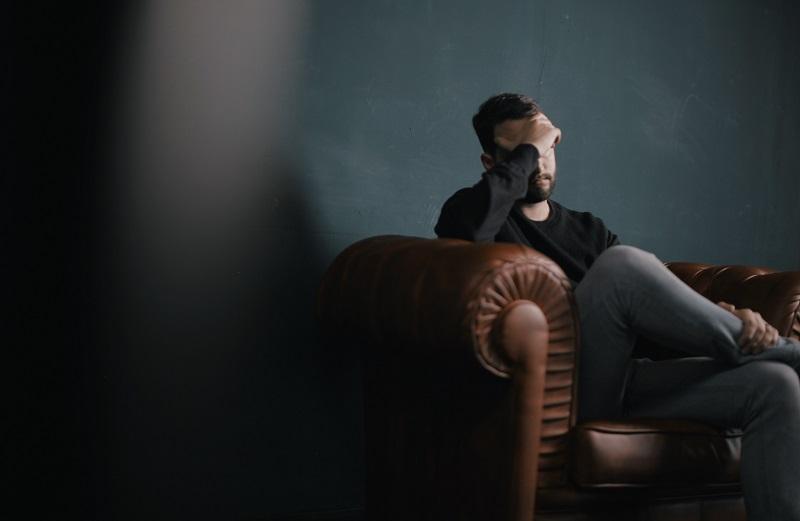“I thought, since I was not legal here, I had no rights, so I was not going to do anything about it and just stay put. Like a little chicken when they get cold, they just don’t move, don’t eat and eventually die” This is the testimony of Milagro, a Latina immigrant woman and intimate partner violence survivor who is amongst the thousands of recipients of the U Visa (Rajaram et al., 2015).
Intimate partner violence is known by many names: relationship violence, domestic violence, dating violence, etc. The CDC coined the term to describe any violent behavior executed by a current or former spouse, as well as a dating partner. The behaviors can range from physical or sexual violence to psychological aggression or stalking (CDC, 2021).
Noncitizens are particularly vulnerable to this kind of violence, especially those who depend on their spouses to gain legal status. Nearly 50% of noncitizen women in the United States experience intimate partner violence since their undocumented status gives the abusers more power tools, allowing them to keep the victim vulnerable (Altreuter, 2018). Apart from this, the victim is often reluctant to seek help in fear of being detained or deported since they are unaware of their rights and options, as exemplified in the testimony of Milagro.
The U Visa: Gain Immigration Status While Prosecuting Your Abuser
The U Visa was created in 2000 after the Victims of Trafficking and Violence Protection Act was enacted by Congress. It has the specific purpose of encouraging victims of domestic violence, sexual assault, gangs, and human trafficking to help authorities go after their abusers in the United States (DHS, 2019). Even though the lack of regulations, in the beginning, delayed its implementation, more than 170,000 applications have been approved since 2009. The program gives de facto residency to more people than the visa lottery or the refugee program(Vaughan, 2020).

The visa provides lawful immigration status to crime victims who are willing to assist authorities in the prosecution of crimes, including domestic violence. It provides women with work authorization and a social security number (NIJC, 2017). Additionally, it allows for temporary legal status for up to 4 years through deferred action, meaning the recipient will be legally present in the United States during this time. After three years of continuous and lawful presence with a U-Visa, women can apply for a permanent residency, and after 5 years with permanent residency status, they can even apply for citizenship (DHS, 2019). Undocumented victims of violence who are seeking to divorce their abuser often find relief once the possibility of deportation is out of the question, not to mention the divorce procedure is no longer limited to a family court and can be taken into a criminal court without fear of banishment from the country (Altreuter, 2018).
How to Know if You're a Candidate
In order to be eligible for this visa, the victim should have:
- Suffered substantial abuse (mental or physical) due to being a victim of criminal activity.
- Information concerning said criminal activity.
- Demonstrated that they are, can be, or have been helpful in the investigation or prosecution of the criminal activity (Any information provided as part of the application process will be kept confidential)
- The criminal activity in question violated the laws of the United States.
- A valid, unexpired passport.

Similarly, the applicant must demonstrate admissibility, meaning that they don't have criminal convictions, haven't committed fraud or been convicted for illegal voting and falsification of the I-9 form for employment, and had no prior deportations, among others. However, the inadmissibility of the applicant is dependent on particular circumstances. For example, in 2020, 10% of U visa recipients had previously committed immigration fraud, 8% had re-entered illegally after removal, and 6% had deportation ordered at some point before.
It is also important to note that the victim doesn't have to be related to the perpetrator of the crime, nor is it necessary for the perpetrator to have lawful immigration status. (NIJC, 2017)
It is also possible that a U visa applicant seeks to sponsor a family member, meaning if there are noncitizen children involved, the victim can seek a sponsor that allows them to access the same conditions as those of the recipient of the visa. If they are under 18 years old, they are also eligible for the U visa as non-direct victims.
Other Options: Divorce and Abuser Prosecution
Even if a domestic abuse survivor is not eligible for the U visa, this should never be an impediment for them to seek help and attempt to cut ties with their abuser. There are several other options that may provide immigration status to victims in order to help them fight off and leave their abusive partners. The Violence Against Women Act (1994) allows the victim to submit their own petition for permanent residence without the abuser’s knowledge or consent. (DHS, 2019).
Likewise, Family Court allows undocumented intimate partner violence survivors to divorce their abusers and therefore sever both legal and financial ties to them. Family Court also allows asking for custody and visitation with the purpose of protecting children from the abuser. It is also possible to request civil orders of protection, requiring the respondent to stop the abuse, stay away from the petitioner, or suspend all contact (even if indirect), all under threat of criminal penalties (Volpp, 1995).
It is also crucial to consult an immigration attorney to analyze the entirety of the options. Sometimes, if the victim of abuse is in the process of obtaining residency or had already gained it through marriage, divorce might not even be detrimental to their immigration status and can be completed without the need for the other spouse to agree. (Volpp, 1995)
Intimate partner violence is a serious problem that affects about 1 in 4 women and nearly 1 in 10 men (CDC, 2021); however, these numbers are much greater when it comes to immigrants. Undocumented victims are often unaware of their options and their ability to seek help and cut ties with their abusers without compromising their immigration status. A study conducted on Latino women concluded that “Obtaining the U-Visa is a transformative and life-changing experience for Latina survivors of intimate partner violence” (Rajaraam, 2015). The same study reported improved mental health, economic well-being, and community rebuilding for the recipients. While the U visa is a good option, it is not the only one. Legislations like VAWA protect battered women - Family Court allows divorce, custody battles, and legal protection against the abuser without risking deportation or criminal punishment (Altreuter, 2018).
Even as an undocumented immigrant or a person in the process of gaining immigration status, you have rights, you have options, and you have access to legal assistance, community-based organizations, and law enforcement. Seek help and allow yourself to be free.
Bibliography
Altreuter, S. L. (2017). Family Courts as Certifying Agencies: When Family Courts Can Certify U Visa Applications for Survivors of Intimate Partner Violence. Fordham L. Rev., 86, 2925.
Centers for Disease Control and Prevention. (2021). Preventing Intimate Partner Violence.
Retrieved from: https://www.cdc.gov/violenceprevention/intimatepartnerviolence/fastfact.html
Department of Homeland Security (DHS). (2019). U Visa Law Enforcement Resource
Guide. Retrieved from: https://www.dhs.gov/sites/default/files/publications/19_0731_uscis_uvisa-law-enforcement-resource-guide.pdf.
National Immigrant Justice Center. (2017). Pro Bono Attorney Manual on Immigration Relief for Crime Victims: U Visas. Retrieved from: https://immigrantjustice.org/for-attorneys/ legal-resources/file/nijc-pro-bono-attorney-manual-immigration-relief-crime-victims-u
Rajaram, S.S., Novak., E., Barrios, A., Rogers, J. & Leal, S. (2015) Women’s Voices: Latinas,
Intimate Partner Violence & Immigration Policy (U-Visa). Final Report. A Collaborative Effort of the
College of Public Health at the University of Nebraska Medical Center, Justice for our Neighbors, Juan Diego Center, Latina Resources Center, Catholic Charities, and Women’s Center for Advancement.
Vaughan, J., (2020). Visas for Victims: A Look at the U Visa Program. Retrieved from: https:// cis.org/Report/Visas-Victims-Look-U-Visa-Program
Volpp, L., (1995). Working With Battered Immigrant Women: A Handbook to Make
Services Accessible. Retrieved from: https://www.acesdv.org/wp-content/uploads/2014/06/ Working-with-Battered-Immigrant-Women-Handbook-English.pdf










